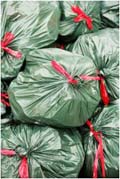Recycling & Solid Waste Reduction
go.ncsu.edu/readext?426378
en Español / em Português
El inglés es el idioma de control de esta página. En la medida en que haya algún conflicto entre la traducción al inglés y la traducción, el inglés prevalece.
Al hacer clic en el enlace de traducción se activa un servicio de traducción gratuito para convertir la página al español. Al igual que con cualquier traducción por Internet, la conversión no es sensible al contexto y puede que no traduzca el texto en su significado original. NC State Extension no garantiza la exactitud del texto traducido. Por favor, tenga en cuenta que algunas aplicaciones y/o servicios pueden no funcionar como se espera cuando se traducen.
Português
Inglês é o idioma de controle desta página. Na medida que haja algum conflito entre o texto original em Inglês e a tradução, o Inglês prevalece.
Ao clicar no link de tradução, um serviço gratuito de tradução será ativado para converter a página para o Português. Como em qualquer tradução pela internet, a conversão não é sensivel ao contexto e pode não ocorrer a tradução para o significado orginal. O serviço de Extensão da Carolina do Norte (NC State Extension) não garante a exatidão do texto traduzido. Por favor, observe que algumas funções ou serviços podem não funcionar como esperado após a tradução.
English
English is the controlling language of this page. To the extent there is any conflict between the English text and the translation, English controls.
Clicking on the translation link activates a free translation service to convert the page to Spanish. As with any Internet translation, the conversion is not context-sensitive and may not translate the text to its original meaning. NC State Extension does not guarantee the accuracy of the translated text. Please note that some applications and/or services may not function as expected when translated.
Collapse ▲What is Recycling?
 Recycling is the process of taking a product that can no longer be used and making another product from all or part of it. The internationally-recognized symbol for recycling is three arrows moving in a triangle. Each arrow represents a different part of the recycling process, from collecting used materials, to re-manufacturing them into new products, and then reselling them.
Recycling is the process of taking a product that can no longer be used and making another product from all or part of it. The internationally-recognized symbol for recycling is three arrows moving in a triangle. Each arrow represents a different part of the recycling process, from collecting used materials, to re-manufacturing them into new products, and then reselling them.
Why Recycle?
 Recycling offers many advantages, including:
Recycling offers many advantages, including:
- Reduces the consumption of raw materials
- Decreases air and water pollution
- Lowers energy usage
- Reduces the need for more landfill space
- Creates jobs
- Reduces waste disposal costs
- Generates revenues from the sale of recyclable materials
- Provides raw materials for industry
- Keeps habitats intact
- Reduces greenhouse gas emissions
Recycle these items that are banned from NC landfills
- Aluminum cans
- Appliances
- Antifreeze
- Beverage containers from ABC permitted facilities
- Computer equipment
- Lead-acid batteries
- Motor oil
- Motor oil filters
- Oyster shells
- Plastic bottles
- Scrap tires
- Televisions
- Wooden pallets
- Yard debris (leaves, grass, branches, etc.)
Recycling Resources
Recycling Extension Publications
by Rhonda Sherman, Extension Specialist
- Before You Recycle, Choose to Reuse
- How Your Business Can Cut Cost by Reducing Waste
- A Low-Cost Plastic Bottle and Jug Baler
North Carolina Recycling Information
- Division of Environmental Assistance and Outreach
- RE3.org Facts
- RecycleMore NC
- Carolina Recycling Association
- Recycling Business Assistance Center
- North Carolina Department of Environmental Quality


